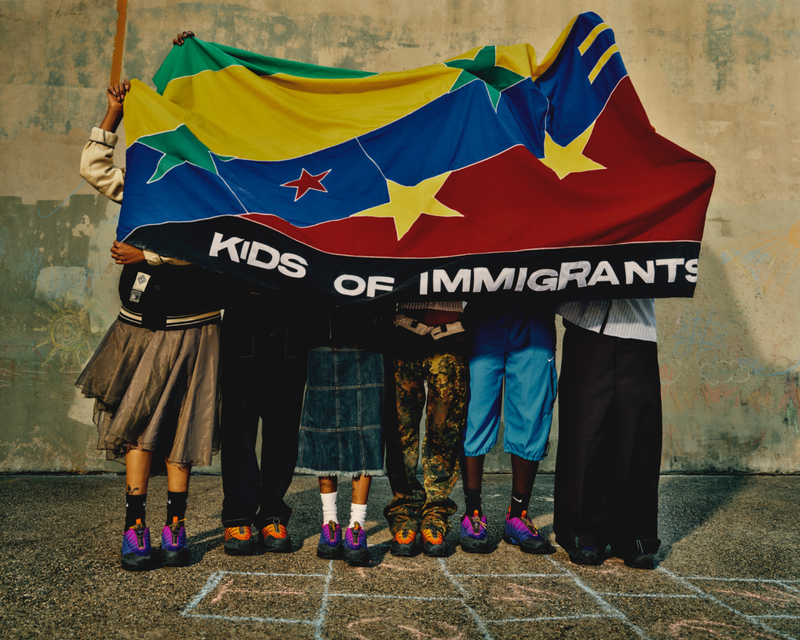
Get Familiar: Johny Pitts
-
Get Familiar
-
Get Familiar
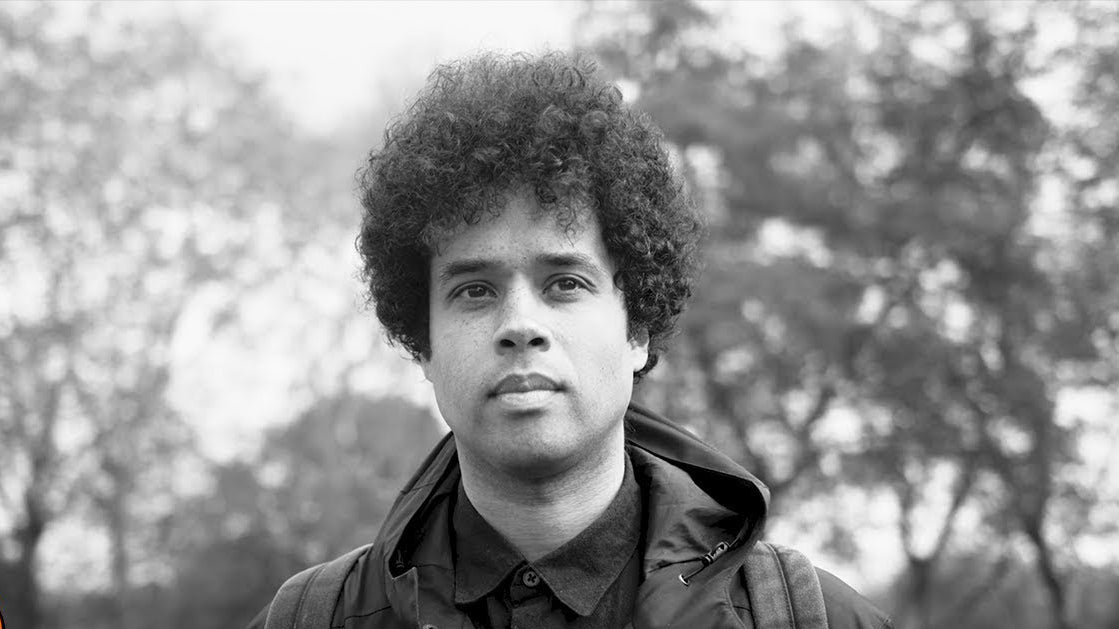
In the context of the G/D THYSELF program, we had the honor of interviewing Johny Pitts, the UK writer, photographer and journalist. John is the curator of the online journal Afropean.com, a platform dedicated to the Afro-European diaspora. In his book, Afropean: Notes from Black Europe, he shares a powerful personal story of exploring Black experience in various European cities. You will be able to visit the exposition curated by John at FOAM Amsterdam from the 18th of Septemeber till the first of November. This program forms part of the festival Forum on European Culture.
Johny, please introduce yourself to our readers who may not be familiar with your work.
I use a camera and a pen to basically do the same thing; tell underrepresented stories that I feel are essential. In fact the visual and the textual sometimes get blurred. I often feel I'm trying to carve narratives from photographs and create visuals with words. But yes, words and images from liminal spaces - that's me.
Where did you get the idea for Afropeans?
It emerged from music culture, initially. The term actually arises out of what I would describe as the ambient world music boom; it was coined by David Byrne and Marie Daulne AKA Zap Mama. I found out recently that Marie was very much influence by what Brian Eno, Ryuichi Sakamoto and David Byrne were doing in the early 80s, as well as the Polyphonic vocals the pygmy tribes used in her mother's ancestral motherland of Congo. As globalisation creaks it's easy to be cynical about that 'world music' moment of the 80s and 90s now, but here was an arty, optimistic coming together of cultures that I found attractive. When I tried to apply it onto the lived experience of everyday people, my understanding of the term needed to be broadened and deepened, which is what I hope happened with the book I made.
For your book, you’ve visited a specific set of places, are there any you haven’t visited or highlighted but feel deserve to be highlighted at a later stage?
So many. The problem with books is that they have to begin and end somewhere. Stories are enclosed within a finite space...even though in my case that finite space is actually quite wide. That's why it's important to mention that the book comes with a website which is user-generated, so that anyone for whom the term afropean resonates can share their story. With that being said, I would have liked have visited more coastal cities, which have an obvious connection to Europe's slave trade. In the UK this would mean a place like Bristol, or Liverpool. In Portugal a place like Lagos, in Holland Rotterdam. I would also like to explore Central and Eastern Europe more, and then also cities in Africa that are encoded with a certain 'Afropean' flavour, like Addis Ababa, Jo'Burg and Freetown. It is endless, really,
How did you select which places to visit and did you feature every place you visited?
Yes I featured everywhere I visited, and my choices were guided by my (lack of) funds and basically where the largest black communities were. I slid in other cities such as Stockholm and Moscow because, even though they don't have black communities the size of somewhere like Paris, they offered interesting historical stories. The book is a contemporary portrait haunted by history, so the black narratives I found were sometimes thought of the dead.
What does it mean to be Afropean?
Many things, but I would say it revolves around communities grappling with the legacies of colonialism, communities who feel of and not of African and Europe; both and yet not fully either at the same time.
What are some of the gifts and the curses of having to juggle multiple allegiances and forging new identities?
There is an innate creativity in the blurring of cultural identity. It offers a spring board into very human questions of place, belonging, cultural coherence, identity, borders, geographies. I like what the writer Amin Malouf says; it's a position that is 'peculiar rather than privileged' but offers a portal into these elusive human desires.
The recent Black Lives Matter protests across Europe and the discourse around them have laid bare how far Europe still has to go when it comes to race relations.
Could you discern a “best” and a “worst” place to live as an Afropean? How so?
Well, it's very personal of course. I found Moscow a very difficult place as a black person - though it wasn't all bad. Every day people were down to earth and friendly, but some of the political and cultural forces lurking behind the scenes are producing a scary sort of Nationalism. I encountered Marseille for the first time on my trip and fell in love instantly - and in fact moved there to live. It isn't perfect but if Afropean has a Mecca, it is surely this space that so personifies what Paul Gilroy entitled 'The Black Atlantic'
In the European parliament, nine far-right parties have formed a coalition, named Identity and Democracy. Could you see the Afro-European diaspora band together and form a bloc of their own?
Not only could I see it happening, I think it's absolutely essential. But this bloc must not fall into the same kind of ethnic essentialism that the far right falls into. As Audre Lorde once wrote; 'we can't tear down the master's house using the master's tools'. If we are to fight this rise of populism then we must build something translocal and fluid; that seeks solidarity instead of silos.
Personally, as a Afro Caribbean Dutchman, while living in Berlin, I learned how Dutch I actually am. On your travels, what did you learn about yourself and the place you are from?
You see I really don't feel very British. I'm even on the periphery of Black British identity, because I can't really route my blackness anywhere - I'm not from the Caribbean, and Africa was stolen form me by the Transatlantic slave trade, and I wasn't born in the States, where my Dad is from, and there's no real coherent African American community in the UK. What I realised in the end is that I'm from Firth Park - the multicultural area I grew up in in the city Sheffield. And the great thing about Firth Park, because it isn't part of the reductive notion of being 'British', is that there are Firth Park's everywhere! That's what I found on my trip. I recognised Firth Park in Biljmer in Amsterdam, in Matonge in Brussels, in Rinkeby in Stockholm and Wedding in Berlin. Places where cultures from across the world live together and form an identity that it is at the same time diverse and coherent.
Do you have any thoughts on “the new migration”, that sees members of the African diaspora relocating to places like Ghana or the Caribbean?
I think it's very exciting. West Africa is a dynamic place of entrepreneurship and innovation - always has been - but I think now, as people are able to cut out the middle man with their own platforms and work remotely with powerful technology such places could only dream o a few years ago, there is a real opportunity to empower Africa. I say that with caution, because of course the very technology that can empower can also crush, and I hope virulent neoliberalism isn't installed with it. But I see so many young people doing incredible things from Africa and the Diaspora - and yes I know Africa is a continent not a country - but why not pull the continent and its diaspora together in this dynamic moment and share knowledge? This is certainly how Europe empowered itself.
You reference music a few times on your platform and in interviews. What would an Afropean soundtrack sound like?
I'm going to share some of the classics, so it will have a slightly old school flavour:
Les Nubians - Makeda FR
Zap Mama - Bandy Bandy BE
Iam 'La Saga' FR
Buika - 'New Afro-Spanish Generation' ES
Joy Denalane - 'Was auch immer' DE
Opgezwolle Feat Winne 'Volle Kracht' NL
Stephen Simmonds 'Alone' (Lord Finesse remix Feat Big L) SE
Parrowdice - Kalashnekoff UK
Valete- Nossos Tempos PT
What’s next for Afropean.com and Johny Pitts? Are you working on a follow-up book?
A friend told me recently that 'the real language of Europe is translation'. So translations into German, Spanish, Italian and French will keep me busy for a while, and hopefully encourage readers and writers from those countries to continue to the website. There is a bit of heat on the photographic element which is nice, because I couldn't express that as fully as I would have liked to in a book that was driven by text - so a few exhibitions are on the horizon, and hopefully a dedicated photobook will emerge.
I'm in the process of putting together a second book - it's very early days but all I can say at the moment is that if Afropean was an attempt to reconcile races, the next book will be an attempt to reconcile generations.
Related Articles
-
 This Friday, December 27th, we’re keeping the festive spirit alive as Kids of Immigrants touches down at the Patta stores in Amsterdam and London to release the Kids of Immigrants Air Max SNDR Sunrise. Kids of Immigrants is a brand rooted in celebrating heritage and channeling it into creativity. With the Air Max SNDR Sunrise release, they pay tribute to their immigrant parents, the original creative directors of their story. Founded in Los Angeles, the brand’s message resonates far and wide. This partnership between Patta and Kids of Immigrants is about coming together as a community and honoring the stories that make us who we are.To celebrate the occasion Patta and Kids of Immigrants created a collaborative limited long-sleeve, only available for purchase on Friday, December 27th. While the Kids of Immigrants team will be at the Amsterdam store, they’ll be there in spirit at the Patta London store. Don’t miss your chance to grab a pair of the limited-edition sneakers. With every purchase, you’ll receive. A limited-edition product poster and an exclusive book showcasing the design processSee you at Patta Amsterdam, Zeedijk 68 (11:00 - 19:00) or Patta London, 6 Silver Pl (12:00 - 18:00) on Friday, December 27th.
This Friday, December 27th, we’re keeping the festive spirit alive as Kids of Immigrants touches down at the Patta stores in Amsterdam and London to release the Kids of Immigrants Air Max SNDR Sunrise. Kids of Immigrants is a brand rooted in celebrating heritage and channeling it into creativity. With the Air Max SNDR Sunrise release, they pay tribute to their immigrant parents, the original creative directors of their story. Founded in Los Angeles, the brand’s message resonates far and wide. This partnership between Patta and Kids of Immigrants is about coming together as a community and honoring the stories that make us who we are.To celebrate the occasion Patta and Kids of Immigrants created a collaborative limited long-sleeve, only available for purchase on Friday, December 27th. While the Kids of Immigrants team will be at the Amsterdam store, they’ll be there in spirit at the Patta London store. Don’t miss your chance to grab a pair of the limited-edition sneakers. With every purchase, you’ll receive. A limited-edition product poster and an exclusive book showcasing the design processSee you at Patta Amsterdam, Zeedijk 68 (11:00 - 19:00) or Patta London, 6 Silver Pl (12:00 - 18:00) on Friday, December 27th. -
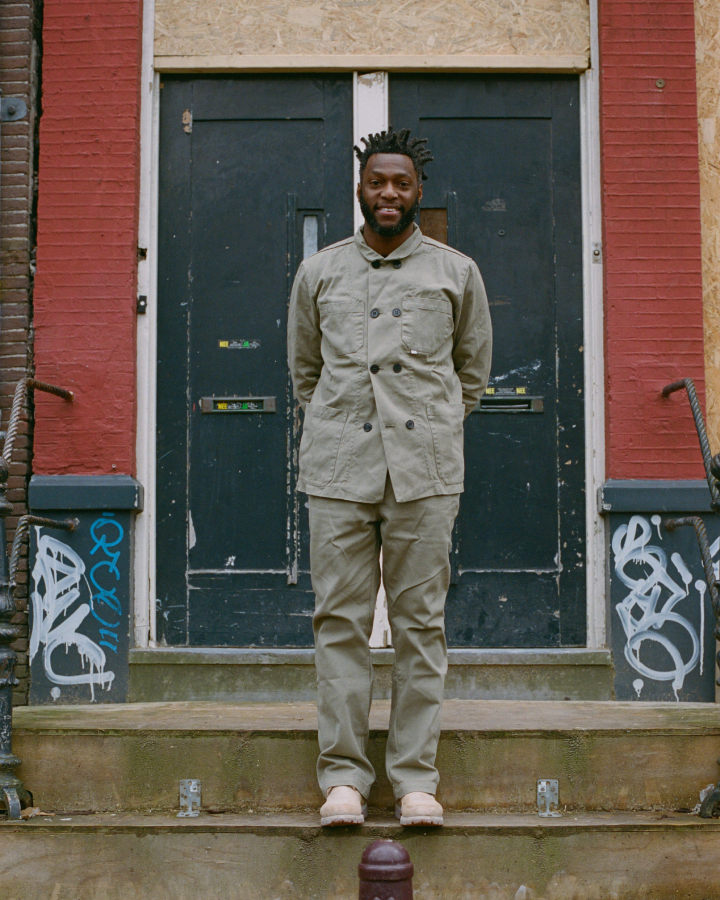
Get Familiar: Safi Graauw
Get Familiar: Safi Graauw
Interview by Candy Reding & Passion Dzenga | Moving Images & Film Stills by Safi GraauwGet familiar with Safi Graauw, a filmmaker whose work is anything but ordinary. Safi’s unique approach blends his scientific background with a passion for purpose-driven storytelling. With a background in Earth Sciences, Safi has a keen ability to look at the world through a socio-economic lens, always asking not just what people want to see, but what they need to see. This perspective infuses his projects with a deeper meaning, whether he's creating a visually striking commercial or tackling complex environmental and social themes in his documentaries.From his work on the Patta x Alpha Industries campaign to his innovative exploration of identity, belonging and diaspora, Safi has continuously pushed the boundaries of storytelling. His projects are known for their emotional depth, where aesthetic mastery is paired with a profound sense of purpose. Safi is also a director who understands the power of collaboration - believing in synergy and giving his team ownership in crafting the vibe of each project. It's clear that every film he creates has got love for the story, the culture, and the message it carries.In this interview, Safi opens up about his journey - from his early career challenges to the filmmakers who inspire him - and reflects on how film can shape a more empathetic and informed world. Get ready to dive into the world of a director who doesn't just want to entertain, but to ignite a shift in perspective and leave a lasting impact.Your campaign video for Patta x Alpha Industries showcases a distinct narrative. Can you walk us through how you approached this project, and what specific message you wanted to convey. When it comes to projects, I always try to be as collaborative as I can. I’m not the type of director that completely sets their vision in stone. The creative process to me is a fluent thing. We started thinking in different directions and ended up with the idea of uniting the four cities Patta has landed in through language and using wind as a metaphor. We wanted to show where Patta started by starting our verse in Surinamese, and wanted to create a full-circle moment by ending the film in Nigeria. Sort of as a homecoming of the diaspora. As a connective tissue, I was looking to use point-cloud animation to transition us from space to space, creating the aesthetic we have now. Your background in Earth Sciences has clearly influenced your storytelling. How did your experience in academia shape your views on communication, and how do you bring that into your work as a filmmaker?My background in science, is a lynchpin to everything I do. Creativity is a very subjective thing, and when being confronted with the creativity of others one can easily get lost in the sauce of what seems relevant. My scientific background keeps me grounded because I always try and approach a project from a socio-economic perspective. I’m the kind of director that doesn’t look for what people want to see, but what people need to see. And to get there, I look at society in a scientific way. You’ve mentioned that you prefer to work from a purpose-driven perspective rather than focusing on aesthetic or medium. How do you go about finding the right form or style for each project?The purpose driven perspective comes from a deep desire to make sure my work adds something positive to the real-life perspective of the viewer. In the case of the Patta x Alpha industries project we aimed for a sense of pride and belonging. There’s so many aesthetic directors, and I love looking at visually pleasing imagery. But to me, at the heart of storytelling lies purpose. Purpose to me is much like a sense of belonging, it creates a goal that is higher than just the work. I need that as a director. I don’t want the work to be about me or my skill. So before I find the right form, I must find the heart of the work, which is essentially its purpose. You emphasize the importance of breaking away from expectations. How do you navigate balancing creative risks with the need to engage an audience and meet commercial objectives?Balancing between creative risk and commercial objectives is an internal conversation about ego. It’s about understanding who you are working for. It’s a conversation that comes before I say yes to a project. I know what I’m working for, I know why I’m working for the brand and its commercial/social objectives then merge with mine. Once that internal conversation is done, it’s all about finding the most interesting angle. In your view, what role does film play in shaping positive narratives in society? How do you ensure that your work adds something meaningful or impactful to the conversation?As someone with a scientific background I am convinced that we live in an age of information. If we look at subjects such as the environment, the research has been done, the scientific consensus is there and the information is widely available. Yet we’re still seeing too little change. This is because the information we share, has little to no emotional value. And that’s where film comes in. Films about nature, make sure we build a love for our natural surroundings and a will to protect it. Because how do we protect that which we do not love? In my work, I try to build just that inside the viewer, an intrinsic love for whatever project they just saw. As a self-taught director, what challenges did you face early on in your career, and how did you overcome them? How did your journey as a filmmaker differ from those who formally studied film?Haha you got time? It’s the insecurities, trying to stand out but not losing your core, being too humble and shy. Early in my career, this idea of having purpose did not exist in the industry. Most of it was about being aesthetically pleasing or comedic. So as someone that wanted to change or influence the perspective of a viewer, there was no space. I think my stubbornness is what saved me. Sticking with my plan, even though being made fun of. Constantly looking for ways to hone my craft. The big difference between me and people who formally studied film, is that failure was always my starting condition. There was no safety switch in the projects I did, and failure could lead to a career end. I got comfortable with the idea that failure was always looking over my shoulder. And as soon as that happened, I started understanding what taking a risk really meant. Pop culture is a key carrier for the social and environmental stories you tell. How do you choose which aspects of pop culture to incorporate, and how do you ensure these stories resonate with a broad audience?Popular culture, has an enormous carrying capacity for a purposeful message. I always try to indulge myself in aspects of popular culture by being part of it. Consuming it, studying it constantly. The aspects of popular culture I choose are mostly linked within the scope of my own interests. And with pop culture, comes that broader audience most brands are looking for, but only if the right story is told. Making sure these stories resonate is much less about the visual part of storytelling, but much more about understanding its mechanics. It’s about understanding the way we as human beings are moved by stories and hitting the right tone for a broad audience to feel something. Your work blends environmental and social themes with commercial and fiction filmmaking. What unique challenges does this blend of purpose-driven storytelling and commercial work present?Filmmaking for most directors is something done intuitively. Navigating environmental and social themes in documentary, fiction and commercial projects requires a relatively in-depth knowledge of storytelling and environmental/social themes. I’m lucky enough to have obtained a master’s degree in earth-sciences which gives me the tools to navigate these spaces whilst being able to fact-check myself whilst doing so. It also makes me a director that thrives when we get off the beaten path. There’s no standard set of rules I apply when coming up with ideas. It’s about finding the core of a project but still having the tools to make sure you are on the right track. The unique challenges I have are more about staying up-to-date with new developments within these subjects and constantly understanding the very core and nature of the project I’m doing. I personally think the challenge is setting aside your ego and understand you’re always learning. Looking at your body of work, there’s a clear sense of consistency in your approach to filmmaking. How do you maintain this coherence while still ensuring each project feels fresh and unique?That’s a very hard thing to describe, but I think it has a lot to do with the projects I choose to work on. I think my enthusiasm is the connective tissue in my body of work. The projects I work on are often an extension of who I am, or want to be. Culture-wise and aesthetically I have certain things I love about storytelling. I think when looking at my body of work you can feel the things in the world I gravitate towards and you can feel them in the different forms I have created them in. How do you see the evolution of film as a medium? Do you think we’re at a turning point where storytelling can transcend traditional boundaries and break even further from conventions?At this point, we’re kind of in a no-man’s land when it comes to film. There’s the development of new tools such as AI on one side. And then on the other hand there’s the focus on fast-paced imagery. I honestly feel like directors are focusing too hard on creating visual impact and developing an aesthetic muscle. We’re being bombarded with aesthetically pleasing shots every day and actually telling a story seems to be left aside more often. But the most important aspect of being a director, is understanding story first. And after that, it’s about understanding shots. If we do not break this convention, directing (commercial) film will become much more like photography. The Patta x Alpha Industries campaign video has such a unique vibe. What’s your process for developing a ‘vibe’ or tone for a project, and how does it inform your decisions about visuals, sound, and pacing?This comes back to finding the heartbeat of a project. What is this really about, aside from a well made jacket. We found this is a project about belonging. It’s about how a brand coming from the minds of the diaspora found its way back home. Using that as our starting point, the conversation clearly stated what we should do. From there, we use our aesthetic muscle and create a vibe around that. Creating that vibe is not just something I do, it’s something that comes from the whole team, from the styling (Esmeralda Tan) to hair and make-up (Gladys Ferro) and art-direction (Floris Eysink-Smeets). I always try and create a synergy between the people I’m working with and make sure there’s a sense of aesthetic ownership within the team. You’ve stated that film as a medium should introduce a new perspective. What do you think audiences often miss when watching mainstream films, and how do you work to highlight those missed elements in your own work?Films (whether its feature film or episodic TV) are supposed to be conversations with our own humanity. The characters we create resemble us, but don’t make the choices we would. They explore possible ideas and mechanisms within humans. Too often do I find a mainstream film that tries to resemble reality too much. I know this is subjective but I feel that’s a missed chance. The Coen brothers nicely wrote; “We all love hearing stories about ourselves. So long as the people in the stories are us, but not us”. I personally try to put my characters in situations that we aren’t familiar with, I try to create a world around them that resembles ours but isn’t. And in the process of doing that, I hope to create something magical and serve some perspective. You’ve built a reputation for creating films that are anything but ordinary. Are there any particular filmmakers or creators who have inspired your approach or worldview?Oh yes! This will be a long answer so brace yourselves: There’s so many but to give you the tip of the iceberg, Guillermo del Toro is a director that makes fairy tales for adults. His work inspires me to my core. Then there’s Guy Ritchie and Edgar Wright, their fast-paced crazy worlds are filled with impossibilities. But these makers always know how to make it believable. I mean, in Snatch, Guy Ritchie literally makes a character travel from America to England in one sentence of dialogue and we eat it like raspberry pie. Then there’s Steve McQueen and Barry Jenkins way of telling black stories, which is one I’ve studied and carried with me forever. In documentary, Yann Arthus Bertrand, an ecologist and director has inspired me to make films that show the grandeur and essence of us as human beings. I’ve learned tonnes of his approach on filmmaking. Ava Duvernay and Spike Lee are the directors I see as an example when it comes to being great examples to others and powerful leaders both on and off set. In my style of directing, I learn from and look at Greta Gerwig. Then there’s Jeymes Samuel, his eclectic personality, excitement, musical taste and the fact that he made The Harder They Fall. Inspires me to the bone. And one day, I hope to live up to the words of Chadwick Boseman. If I could be half of the man he was, I’ve lived a good life. “Take your time, but never waste your time”.Filmmaking has the potential to bring about change, but that’s a significant responsibility. How do you stay grounded and true to your purpose while navigating the pressures of the industry?I like to see myself as someone that truly shows what I stand for in the most honest way I can, so that the industry gravitates towards me, instead of the other way around. How do you want audiences to feel after watching one of your films? Do you aim for specific emotions, or do you hope they walk away with new ideas and perspectives?When starting the edit of a film or TV-series, I always say “We zagen ze door de helft!” which literally translates to: “Let’s cut them in half!”. By saying that, I state that my intention in creating the film or an episode of a TV is cutting right through the emotions of the viewer. I always try to convey honest emotion within the viewer. I want them to experience everything in between laughing and crying so that the film they watched is the sum of an actual human experience. Finally, looking ahead, what projects or stories are you most excited to explore? Are there any themes or concepts that you're eager to tackle in the future.There’s so many things in store at this point. I’m the showrunner and main director of a series in currently the biggest crime-franchise in the Netherlands. I’m working with awesome writers to create a new direction. I’m currently working on a very interesting short documentary about the Second World War. That’s been an amazing journey up until now. There’s feature films hopefully being commissioned at the time of writing. But there’s one thing I’ve been really excited about. It’s a lot smaller than most of the things I summed up until now, but I’m going to work on a children’s book with a very good friend of mine (Jerrold). It’s a small endeavour but I’m really excited about it and hopefully I one day get to develop that into an animated feature for you to see. To commemorate this landmark year, we’re releasing a limited-edition collaboration with Alpha Industries, the iconic MA-1 Bomber Jacket. The Patta x Alpha Industries MA-1 is a timeless piece that blends Patta’s signature style with Alpha Industries’ heritage, creating a jacket that’s as bold and authentic as the cities we represent.The Patta x Alpha Industries MA-1 Bomber Jacket will be available on Friday, December 20th at 13:00 CET on patta.nl, patta.co, pattaclothing.us and the Patta mobile app.-
Get Familiar
-
-
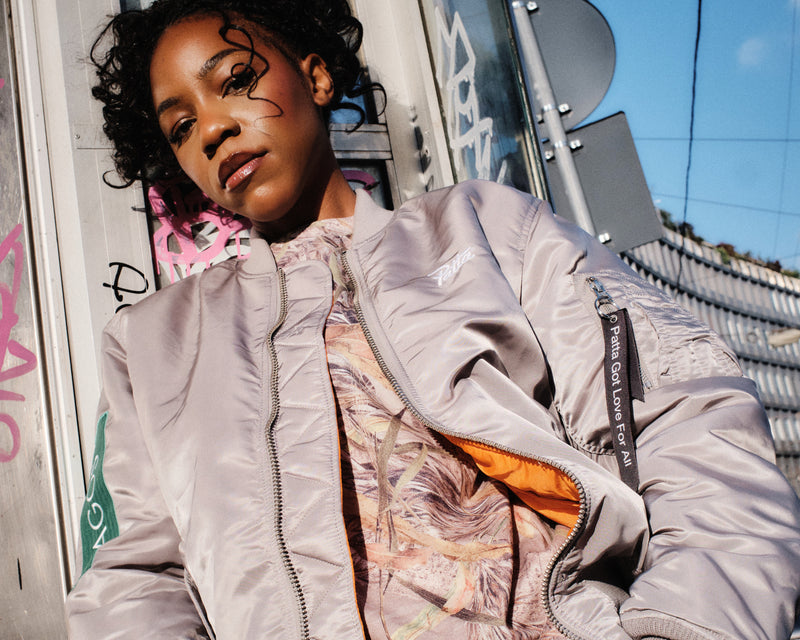
Get Familiar: Epoque
Get Familiar: Epoque
Interview by Passion Dzenga | Photography by Andrea AmponsahIn anticipation of the brand new Patta x Alpha Industries collaboration for 2024, we sit down with one of the talents from the campaign, Epoque, an artist whose unique blend of Afro sounds, R&B melodies and rap is reshaping the music scene in Italy. Raised in Paris, Brussels, and Italy, her multicultural upbringing has played a significant role in shaping her sound and artistic vision. From her deep connection to her Congolese roots to her collaborations with some of the biggest names in music, Epoque has quickly become a trailblazer for second-generation artists in the industry. In our conversation, Epoque shares insights into her musical journey, the challenges she faces as an emerging artist in Italy, and the influences that have helped shape her style. She also opens up about the importance of authenticity in her lyrics, the impact of Afrobeats on her sound, and her hopes for the future of the genre in Italy. Get familiar with the artist behind Tram 83, as she talks about her creative process, personal growth, and the exciting projects that lie ahead. Epoque, your upbringing in Paris, Brussels, and Italy has clearly shaped your musical journey. How has living in these different cities influenced your sound and artistic vision? Living abroad certainly helped me appreciate a lot of different music, which allowed my style to emerge and evolve. Above all, it helped me make my music credible in the Italian language, which may seem obvious, but it’s not easy. Your music blends Afro sounds, R&B melodies, and rap. How did you first get into these genres, and how did they come together in your own unique style?Ever since I was a little girl who loved listening to music, I wasn’t allowed to go out much, so I closed myself off by listening to music all day. My older brothers had CDs of rap, R&B, and hip-hop, so I listened to a lot of that non-stop. My parents also loved listening to traditional Congolese music on Sundays, and we had small parties with traditional food to liven up our days when we were all free. Then, as I grew up, I started listening to reggae, Michael Jackson, Gorillaz, and soft rock, which were a bit of a departure from what I had always listened to. In my opinion, this broad musical background allowed me to create my own style. You mix Italian, French and Lingala in your lyrics. What is the significance of these languages in your music, and how do they help express your identity?In everyday life, I tend to mix the languages I know and have learned. When I started singing, I wanted to do the same, but I also believe that musically, I did it to stay close to my roots and complete the identity of the genre I’m working in. Can you tell us a bit about the moment you realized music would be your calling? Was there a specific artist or event that inspired you to pursue this path? When I was little, I certainly loved Michael Jackson, because in addition to his music, which moved me deeply and gave me many emotions, he always wanted to give a message. And for me, this is very important. On the other hand, at the beginning, I wasn’t aware of where I could go with music, given my background and the type of music that is generally listened to in Italy. But it was certainly the positive response from people that made me realize I could do something serious with music. You’ve worked with big names like Ernia, Jovanotti, Villabanks, and Irama. What have these collaborations taught you about the music industry, and how have they helped you evolve as an artist?I never went to a music school. I started this journey from my hobby and personal background, so working with big artists helped me shape my songs in a different way. It taught me to look for influences suited to my genre in the right places and to have a more productive approach in the studio. It helped me believe in what I do, regardless of the results, and to give the right weight to everything. I’m very grateful for this. In December 2022, you were part of the exclusive opening event for the World’s First Jordan Store in Milan, alongside Lazza. How was that experience, and how did it feel to be recognized at such a high-profile event?When the invitation arrived, it was hard to believe. I’m very grateful and felt a great sense of responsibility at that event. I didn’t want to mess anything up. As a Black artist who makes Afrobeats in Italy, being invited to an event like that means a lot to me. It shows that things are changing. You were also featured in the Fred Perry Subculture campaign, where you shared the influence of alternative music on your style. What was it like to represent a brand that celebrates individuality and youth culture? The collaboration with Fred Perry was very important. I wanted to give a voice to all the second-generation people with talent who have something to say and bring to the music industry and beyond. You were the face of New Era’s 2022 campaign titled “Now Playing.” What was your role in this project, and what was it like being the Italian representative for such an international initiative? For New Era, I wanted to represent the second-generation segment that, through their roots, can bring something new to the music scene in Italy.Your lyrics are often self-conscious and deeply personal. What role does authenticity play in your music, and how do you balance vulnerability with your public persona? For me, authenticity is very important. I grew up listening to rap music where the lyrics were very clear and explicit, talking about everyday life, the good and the bad, and the culture. I feel very comfortable with this, and for me, it’s also a way to connect with the people who listen to me, to make them feel involved and part of something. Afro rhythms are a key part of your sound. Can you talk about the significance of Afrobeat and Congolese culture in your music and how you stay connected to your roots while pushing your own boundaries?I don’t know if it’s an urban legend or if it’s true, but Congolese people are very proud of their music, and when I started making music, I felt that pride within myself. It’s about carrying forward the culture. My parents unconsciously influenced me a lot and helped me understand how strong both the message and the sounds of traditional music were. So, I’m proud of it. As an emerging artist in Italy, what challenges have you faced in the music industry, and how do you navigate those obstacles? Being an emerging artist is definitely about pushing myself beyond what I can do. Sometimes it requires giving my best, and it can be draining and make you feel a bit alone. But I’m aware that this is just the beginning. Doing a genre that isn’t popular in Italy is still the biggest obstacle, but I’m happy with the positive response I’ve gotten from people, colleagues, and professionals. I feel that there is a desire for something new and different in the music industry. You’ve already achieved so much at a relatively young age. What’s next for Epoque? Are there any upcoming projects or collaborations that we should be excited about?In 2025, there will definitely be new music and collaborations, but for now, I’m enjoying the release of my first EP, Tram 83, which I’m very happy and proud of. You’ve become a role model for many young people, especially those who identify with a similar multicultural background. What advice would you give to other aspiring artists who are trying to find their voice in the music industry?One piece of advice I can give is to be humble and patient. Focus on your goals clearly, surround yourself with positive people, and do what you believe in as best as you can - without caring about trends or what people usually listen to on the radio. Finally, what’s the message you hope to leave with your fans through your music, and where do you see your career going in the next five years? In five years, I hope to be the best version of myself as an artist, and I hope that with my music and the music of my colleagues in the same genre, we can truly integrate Afrobeats into Italy. With my music, I try to remove any boundaries, to give a message of positivity and faith in victory. In my case, coming from a very humble background and family, I believe victory can be achieved by anyone - you just have to believe in it and stop comparing yourself to others.To commemorate this landmark year, we’re releasing a limited-edition collaboration with Alpha Industries, the iconic MA-1 Bomber Jacket. The Patta x Alpha Industries MA-1 is a timeless piece that blends Patta’s signature style with Alpha Industries’ heritage, creating a jacket that’s as bold and authentic as the cities we represent.The Patta x Alpha Industries MA-1 Bomber Jacket will be available on Friday, December 20th at 13:00 CET on patta.nl, patta.co, pattaclothing.us and the Patta mobile app.-
Get Familiar
-
-
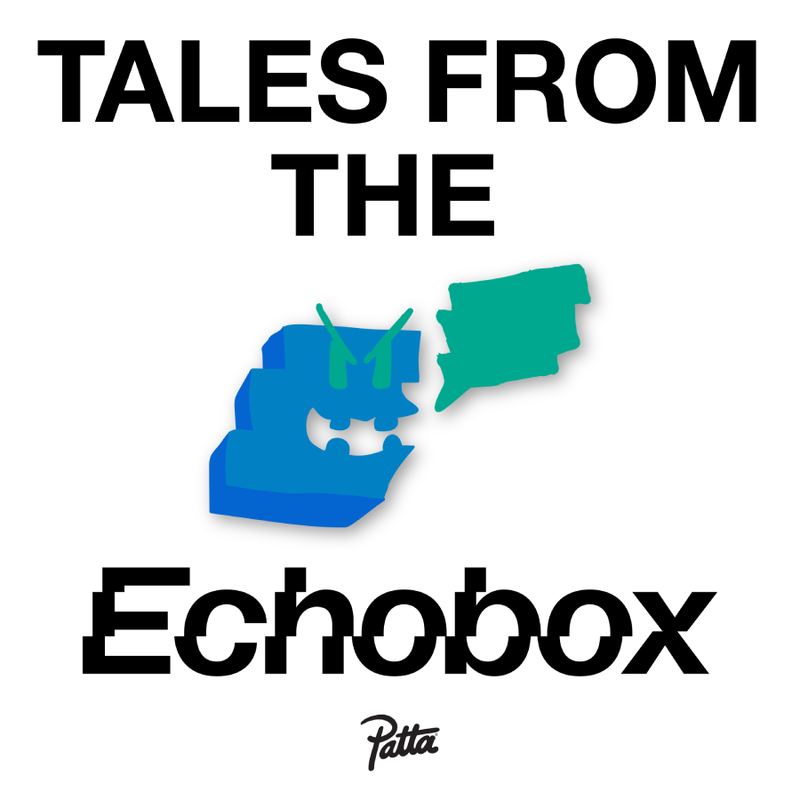
Tale from the Echobox 017
Tale from the Echobox 017
Interview by Joe Leonard-Walters | Edited by Passion DzengaLaunching in 2021, Echobox has been forging a path for community radio by showcasing the diverse characters and concepts that surround them. In this feature, we will be looking into a few of the broadcasts that you can tune into so get locked in and don’t touch that dial.Feel all the feelings: in Hysteria, angelboy plays music that evokes a different emotion every month. You can catch up with this show now on Echobox Radio. Your show plays on emotions and the way we experience them from music - why was important that your show is so personal?I’ve always been someone who feels things deeply (for my astrology girlies: Pisces and water signs DOWN). Emotions are at the core of everything I do, but for a long time, I felt like they were something to tone down. This show became my way of doing the opposite — of cherishing and exploring feelings through music.Besides that, I don’t like to be bound by genres. It makes no sense for me to structure music based on what elements a song has, but rather what it does to you while listening to it. With Hysteria, I wanted to create something that people could use to either shift their mood or fully lean into their emotions. Whether it’s to go from feeling annoyed to finding joy or to dive into grief, embrace it, and hopefully find relief afterward. What's the most hysterical track on your USB?‘Meaning what exactly’ by Coil: a captivating, eerie, and melancholic track that lends itself for many emotional interpretations – as the title implies. I think that is the beauty of music: it can evoke different feelings in everyone, based on taste or experiences. Hysteria thrives on this idea, with guest shows often flipping my own perspective. A song I might find sad could feel euphoric to someone else. With Hysteria you start to hear music not just through your own lens, but through someone else’s emotional state, and it shifts the way you experience it. Is there as much emotion in your DJ sets and productions as your radio shows?Definitely, but in a different way. While Hysteria is about one emotional theme, in my DJ sets I want to guide people through multiple emotions. I often start with tracks that spark curiosity, then slip into more repetitive rhythms that feel meditative, and then it’s about balancing feelings of ecstasy with rougher feelings like frustration or anger. By the end, I aim for a sense of release, leaving you somewhere different from where we started. As well as an Echobox resident, you’re a published author. How does your show relate to your writing?Music and writing are two sides of the same coin for me — they both evoke emotions in unique ways. I always feature poetry in my shows because, like music, it distills feelings into their purest form. A few words can spark something profound, just like a melody or sound. What I love most is how both leave space for interpretation, encouraging listeners or readers to bring their own experiences into the mix. Hysteria is about blending these forms, offering both sound and text as a way to make emotions resonate.Screamo Listening Sessions is a monthly radio show with Marvin Schippmann and more: amplifying emotional & daring music with a lot of screaming. You can catch up with this show now on Echobox Radio.Turns out it isn't just a phase - how did your love affair with screamo start?In the mid-2000’s, when I was between 15 and 16 years old and myspace was still around - I began my journey into the realm of heavier music, and started listening to more punk, hardcore, (mainstream) emo (think of My Chemical Romance) as well as also a lot of metalcore which was all extremely popular at the time. At the time, I had a full-on “scene” phase with black dyed hair, eyeliner and skinny jeans - and most heavy music was introduced to me through friends from school or concerts, bands linking other bands on their myspace page, printed magazines - and of course live shows and festivals’ line-ups. Most festivals were either too expensive for me to visit or far away such as in the US (thinking of Vans Warped Tour, etc.), but I still used the line-ups on festival posters as reference for bands to check out. Ultimately, I still ended up listening to a lot of the heavy music for the mainstream throughout my teenage years and only very little of the music and the shows I experienced in Germany (mainly in Hamburg) during my teenage years, retained much the DIY ethos, honesty, depth and radical form of emotional expression, which were and are essential to screamo and the DIY community. Although there are numerous and important DIY spaces in Hamburg, it took me a while to get to know about them and even longer to get familiar with people involved. It was actually years later, after I moved to Amsterdam, started studying and eventually began an internship at Patta - that my love for heavy music and in particular screamo would be reignited. I properly fell in love with screamo rather late, in my mid-20’s - when I started to explore more of the genuine roots of the mainstream music I was fed /consumed during my teenage years. For the past 7 years, screamo has been with me every day - and thanks to Echobox I have been able to proclaim my love and admiration for this genre, heavy music as well as DIY culture in public with Screamo Listening Sessions every four weeks, for the past three years. Do you find catharsis in the intense music, or is the rest of your life just as intense?Yes - there is definitely something cathartic about intense music, whether it is screamo, metal, dub or techno. I have been working at Patta for the past 9 years and it is never boring - and especially in busier periods and even stressful moments, music has always functioned as ventile. In particular, feeling overwhelmed and being able to let go of this feeling until feeling at ease with everything (even despite everything) - are two recurring states I find myself in when experiencing intense music, especially at live events. In the process of letting go and accepting being utterly overwhelmed, I often find myself most at ease and in sync with the music around me. I am actually rather an introvert person and often admire others for their ability to express themselves and convey meaningful thoughts and/or emotions in form of words & essentially sounds. However, moving along with music or dancing to music is a way I feel like I can express myself and give appreciation to music & musicians - so music becomes an important catalyst for expressing my own emotions and thoughts even if it is only through movements. Especially screamo (done well) is able to convey emotions, thoughts and/or opinions that one can empathise and identify with whether or not I actually understand all of the lyrics right away. I am not saying that the lyrical content is irrelevant, quite the opposite is the case (once again if done well - IMO). In this dynamic there is a strong element of identifying with each other on a human level - and confronting each other with the emotions, opinions and/or worries (even trauma - yet also joy & love) we might share - through music even though (or maybe because) most vocals are screamed. Do you have a favourite memory from hosting your show?Sorry, I have a bunch…Such as having all three members of the band, Apousia - for a live broadcast on the show - is a very special memory. Two band members, Luna and Farah - were able to join in person in the studio and drummer Assia - was calling in remotely. Meeting & interviewing Pierce, GG, TJ and Leon from Soul Glo together with Passion is also high up there. The guest feature with Vincent Shore from Second Guessing, Karnabahar, GGGOLDDD which was the first guest feature with an in-studio guest during live broadcast.If you could pick one track to get someone into screamo, what would it be?“Tigersuit” by Raein Any plans to take the listening sessions offline and in-person? What does the future hold?Earlier this year, friends, Danny and Joran - from the band Dooie Mus and Dooie Mug Booking and I booked a show with Vibora, Oscuro Culto and Apousia at the OCCII - which was a very special experience with three incredible bands.I would love to keep booking more shows and help to get more bands to come play in Amsterdam and NL - and I am looking forward to getting more involved in this soon. I am also volunteering at the OCCII in Amsterdam - and am planning a recurring series of Screamo Listening Sessions with take-over episodes by people who are also involved and affiliated with the OCCII and the local DIY community.These take-over episodes might not feature any screamo - and can have any musical direction or radio show concept, depending on who is sitting in or taking over. This way I hope that Screamo Listening Sessions can also be a platform for the local DIY community, since screamo as a genre is rooted in DIY culture and depending on its existence.The first edition of the OCCII take-overs will be broadcasted live on the 28th November - and I am excited to welcome Apostolis from World’s Appreciated Kitsch at the Echobox studio for this.-
Music
-
Tales From The Echobox
-
-
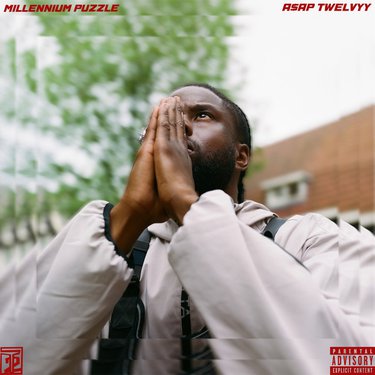
A$AP Twelvyy - Millennium Puzzle
A$AP Twelvyy - Millennium Puzzle
A$AP Twelvyy has just dropped the music video for his latest single, "Millennium Puzzle," the title track off his upcoming album. The video, which showcases his signature street style, captures Twelvyy navigating the city while wearing the latest from Patta AW24 and the Nike x Patta Running Team collection.While in town for the shoot, we caught up with Twelvyy as he hit the shops, effortlessly blending fashion with his trademark urban edge. The track itself is a tight, energetic release that matches the video’s high-paced visuals, reflecting the complex layers of Twelvyy’s sound.-
Music
-
-
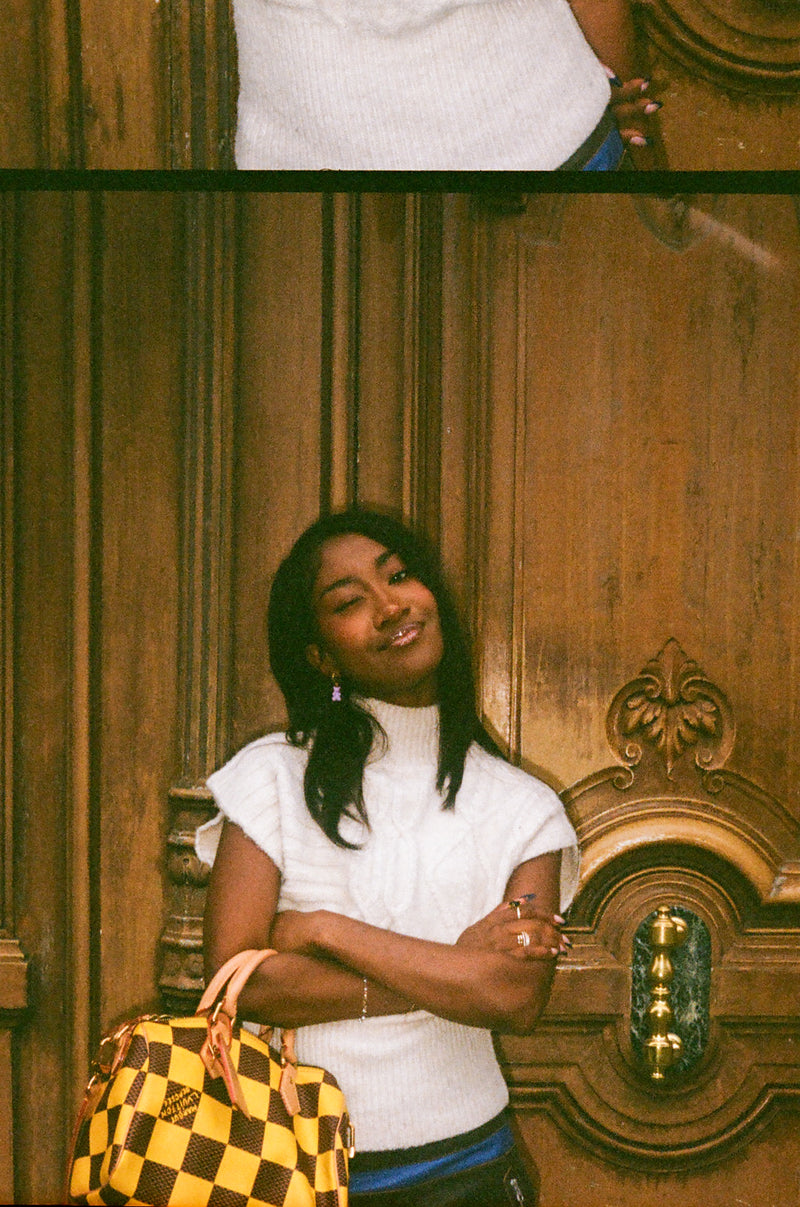
Get Familiar: Saràh Phenom
Get Familiar: Saràh Phenom
Interview by Passion DzengaSaràh Phenom is a bold artist whose music and fashion break boundaries, blending global influences with her unique sense of self. Born in Rwanda and later moving to Europe, Saràh’s eclectic tastes and distinctive worldview set her apart from a young age. She often felt like an "alien" due to her different way of thinking, and this sense of individuality continues to shape her artistry. Her teachers dubbed her "Phenom," recognizing her as a true phenomenon.From early on, Saràh was captivated by music and fashion, inspired by everything from music videos to vintage European fashion. As a child, she was drawn to expressing herself through these mediums, forging deep connections with people from diverse backgrounds. Now based in London, Saràh embraces a "little fantasy world" of her own, where she navigates life and art with a fearless, non-linear approach.Her EP, girl, is a vibrant collection of tracks that reflect two years of personal growth and experiences. With themes of empowerment, self-discovery, and the beauty of imperfection, the EP showcases Saràh’s musical range and unapologetic confidence. Drawing from influences contemporary pop music, and her grandfather’s love for Latin and classical music, Saràh’s sound is a fusion of rhythms, melodies, and raw emotion. Join us as we get familiar with Saràh Phenom.How did your childhood in Rwanda shape your artistic vision and identity?It made me stronger, definitely tougher, but also very open-minded! I grew up surrounded by people from all over the world, so from an early age, I was introduced to and became interested in multiple cultures.You mention feeling like an "alien" due to your unique way of thinking. Can you elaborate on what that means for you and how it influences your creativity?I’ve always felt alienated. It’s like my brain thinks completely differently from the people around me, which makes me view the world in a unique way.Who were your biggest musical influences growing up, and how did they impact your approach to music and fashion?Kanye West, Gwen Stefani, Lady Gaga, Beyoncé, and Rihanna were my biggest inspirations. Sonically and visually, they had the strongest impact on my life. Their vision and artistic expression were unapologetic and erratic, which was a revelation for me as someone coming from a place as conservative as Rwanda.You have a strong connection to fashion. How does your personal style reflect your music and vice versa?A lot of times, I make soundtracks for my life situations, so I have a song for every occasion! Can you walk us through the inspiration behind your EP, girl? What themes and emotions are you exploring in this work?I’m exploring growth, self-discovery, and motivation. I’m talking about my transition from girl to woman, moving to a big city, navigating my industry, and growing as a person—finding motivation in the small things along the way.You describe your music as a cathartic expression of your feelings. How do you channel your experiences into your songwriting?I live through them and then go into the studio. I get a conversation going with collaborators, we cook up something, and I end up laying down melodies and lyrics. If I have writers with me, we fill in the gaps. It’s as direct as that!What does your creative process look like when you’re composing music? Do you have any rituals or routines that help you get into the zone?I do a few vocal exercises, drink tea, and stretch—nothing too crazy (that I can think of)!How does your work address themes of women's power and the beauty of imperfection? What message do you hope listeners take away from your songs?I hope they have fun and feel inspired to create! I want them to take away the message that they can do anything they set their minds to, not to compromise on things they don’t genuinely feel, and to put themselves first at all times (which I haven’t been doing a lot of lately). Also, it’s okay to be different and try new things!Your music transcends geographical boundaries. How do you integrate your diverse experiences into a cohesive artistic vision?By collaborating with like-minded people who also have diverse backgrounds! For this EP, it was crucial for me to work with people who understood the broad scope we were aiming for, and together we were able to narrow it down and conceptualize the project.You mention navigating the complexities of life in a unique way. How do you stay grounded amidst the chaos and fast-paced nature of your journey?I don’t —but then I write about what I’ve learned from being devious or all over the place. It depends on the season I’m in! I know the pressure and chaos will get worse, but what keeps me grounded in general are my sisters and cousins. They care a lot about me and always check in. I love them with all my heart, and my faith keeps me strong.What do you hope to achieve through your music in terms of connecting with your audience?I hope I can touch a part of them they didn’t even know they needed to be touched! I share my experiences, and I hope someone out there can relate the way I do.Looking ahead, what are your dreams and goals for your music career and artistic endeavors?I have so many! One big dream is to perform in stadiums and collaborate with my favorite artists, as well as other up-and-coming artists I really admire. I want to win awards and break boundaries for other Black women who experiment with different sounds without being put into boxes.You describe living in a "little fantasy world." What does that look like for you in everyday life?It’s actually very hard. I get called delusional almost every day, but at the end of the day, it’s just how I choose to live my life, and it’s truly pushed me to great heights. I’m sure it will continue to do so! You control your own reality.If you could collaborate with any artist from your diverse list of influences, who would it be and why?I absolutely love Banks—I've always been a fan—and Kanye West, because I feel like the collaboration could either be musically daring and beautiful or lyrically totally outrageous! Either way, it would be amazing!What do you want your legacy to be in the music and fashion industries?I want to become a household name! I want to be a voice for the misunderstood, the forgotten, and those who haven’t had a chance to express themselves.You can stream Saràh Phenom's latest project girl now-
Get Familiar
-
-
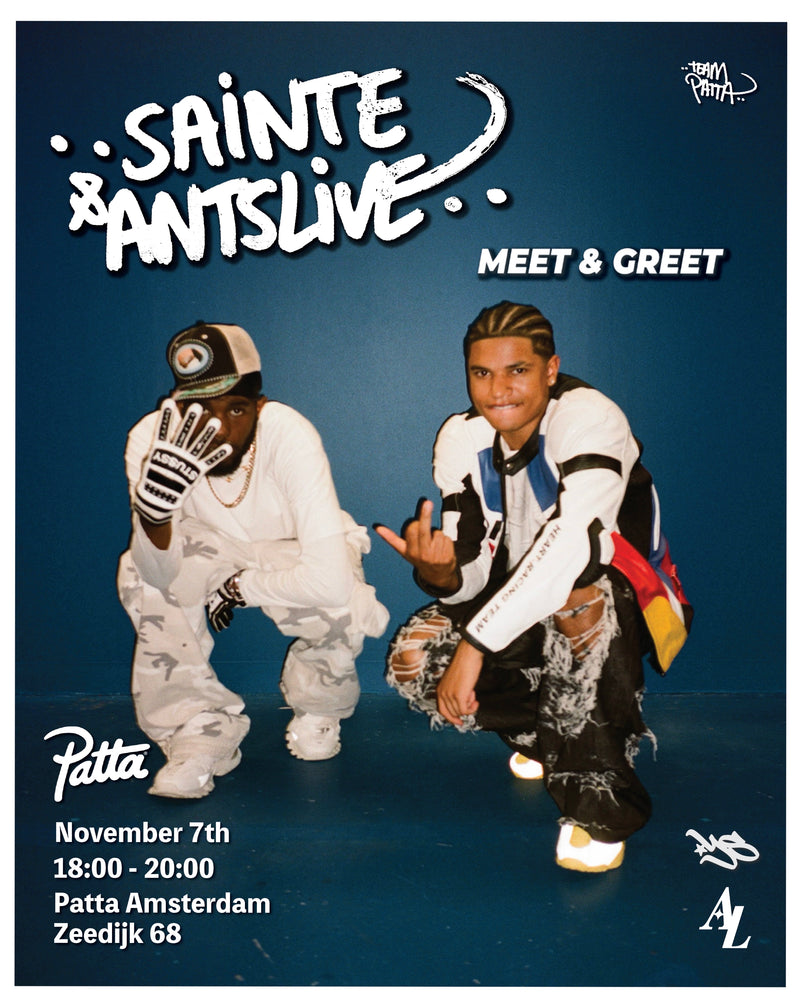
Ants & Sainté at Patta Amsterdam
Ants & Sainté at Patta Amsterdam
Patta Amsterdam are excited to invite you to a special in-store event with two of the most exciting names in the game right now - Ants & Sainté! Whether you’re a long-time fan or just discovering their work, this is the perfect chance to meet them, chat with them in person, and get a behind-the-scenes look into their world. Ants & Sainté are making waves with their unique sounds, fresh style, and undeniable energy. And now, they’re taking time to meet you - their fans and the Patta community - right here in Amsterdam.Ants & Sainté will be in-store at Patta Amsterdam, Zeedijk 68 from 18:00 until 20:00 on November 7th.This is your chance to snap a pic, ask questions, and vibe with the artists up close. Whether you’re a sneakerhead, music lover, or just someone who appreciates good energy, you won't want to miss this event! So grab your friend and come down to Patta Amsterdam for a legendary meet & greet. Can’t wait to see you there!Get familiar with Ants here.Get familiar with Sainte here.-
Get Familiar
-
-
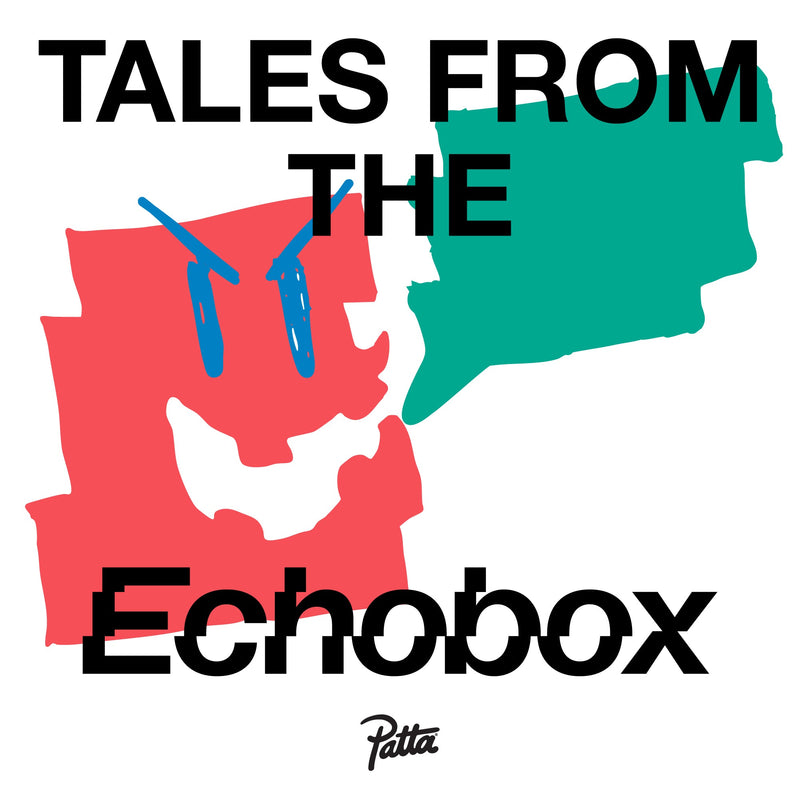
Tales From The Echobox 016
Tales From The Echobox 016
Interview by Joe Leonard-Walters | Edited by Passion Dzenga Launching in 2021, Echobox has been forging a path for community radio by showcasing the diverse characters and concepts that surround them. In this feature, we will be looking into a few of the broadcasts that you can tune into so get lock-
Music
-
Tales From The Echobox
-
-
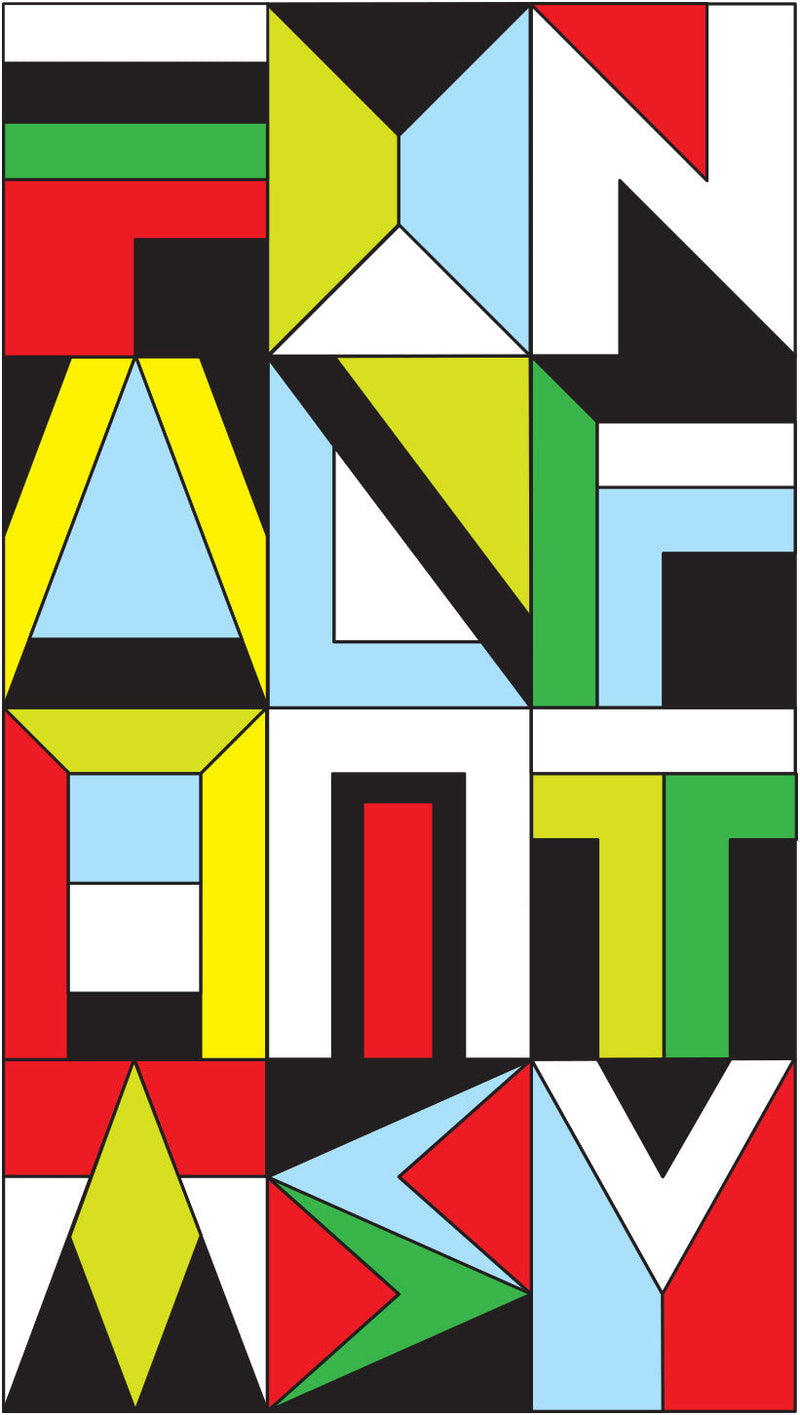
Boris Tellegen - Final Fantasy
Boris Tellegen - Final Fantasy
Get ready for an exciting new exhibition by Boris Tellegen at Backslash Gallery in Paris, running from November 9 to December 21, 2024. The opening reception is on Saturday, November 9, from 2 PM to 8 PM, and you won’t want to miss it! Tellegen, known for his vibrant street art and intricate designs-
art
-
-
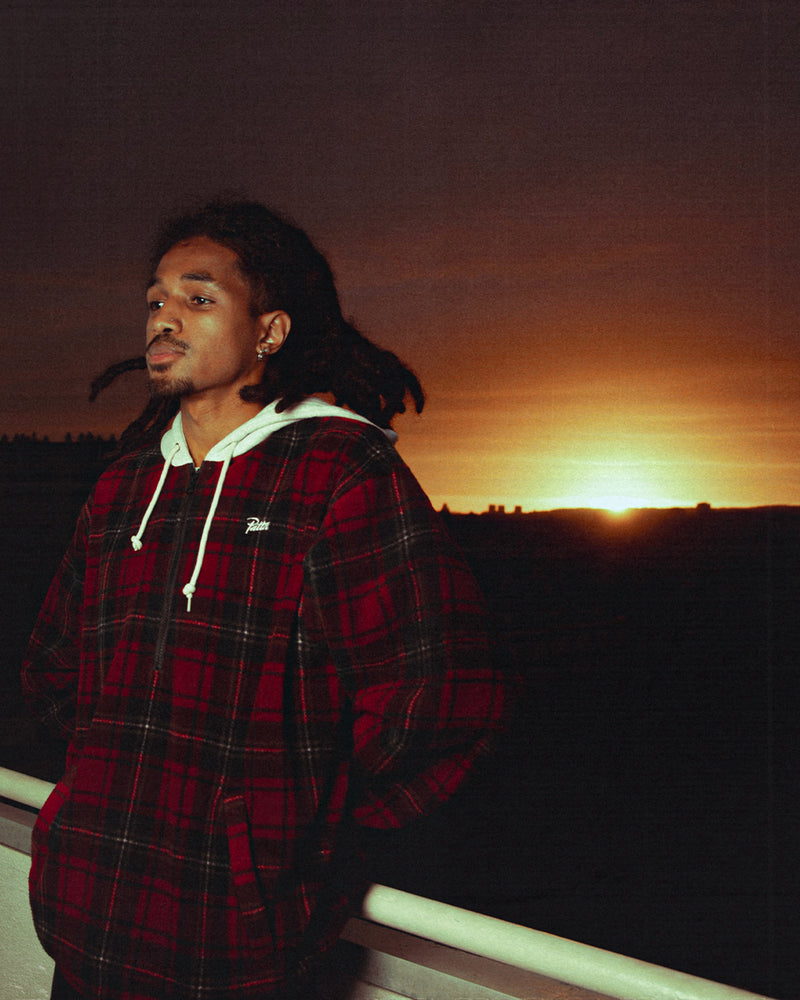
Get Familiar: MANSO̶U̶R̶
Get Familiar: MANSO̶U̶R̶
Interview by Passion Dzenga | Photography by Adam ZMMeet MANSO̶U̶R̶, the rising star making waves with his new psychedelic EP ‘not disturb’ featuring Sam Wise, Kadiata, El Londo and Rxlls. From spinning sets for big names like JEAN PAUL GAULTIER and NIKE to crafting his own sound, MANSO̶U̶R̶ is bridging the gap between Paris and London’s underground scenes. Raised in an Algerian and Guinean household in Paris, he soaked up rich cultural influences that shaped his eclectic style. At just 21, this esteemed DJ blends hip-hop, jazz, and electronic vibes, creating infectious energy on stage. As he continues to rise, his DIY spirit and creative edge are positioning him as one of the most exciting new voices in the game. Let’s dive into his journey and the sounds driving his artistry!Congratulations on your brand-new EP 'not disturb'. Can you walk us through the creative process and collaboration behind it? What were your inspirations and what do you want listeners to take away from it?My inspiration behind it was honestly just everyday life, you know. All these same questions we all ask ourselves — “not disturb“ is based on real-life experiences. It's about recognizing and handling our emotions in a mindful way. People often fear their emotions, but to me now, it’s fine —you can’t escape who you are. It’s also about knowing when and how to step back from the noise, to protect your own peace and mental space. I’m part of the #albumteam. I really love albums. Especially the ones that resonate with me, my experiences, whatever I’m going through. I love how an album can speak to me, even from miles away, make me feel understood. So I thought why not do the same with my own music. 'not disturb' is my way of capturing these emotions and experiences we all face, through my own creation. That’s why I want people to not just hear it, but actually listen to it.Also, side note - never underestimate a project that a friend sends you because it made them feel something, an emotion they chose to share with you. I love my friends, they build me up, and to me, that's powerful, ngl.Growing up in Paris with Algerian and Guinean roots, and spending time in London, your sound is a unique blend of cultures and influences. How do you think your upbringing has shaped your approach to music and creativity?Long story short: Mumsy listened to Tina Turner, Dad to Miles Davis. She’d play a lot of Disclosure, he would have Mary J. Blige on. You get the idea. So I think that naturally when you see how music can deeply move people like that, it can make you want to feel that same magic. I will say though, I think when you’re a music nerd or neek (or whatever people are calling you) it can feel kind of overwhelming. You’re exposed to so much music that you end up liking a lot of different things. But yeah, my life has always revolved around music; it's really that simple. I will never stop [creating music]. I need that.You’ve worked with some major fashion brands like Jean Paul Gaultier and Nike. How did you go from DJing for these big names to stepping into music production? How do fashion and music intersect for you?First I wanna say I’m thankful for that. I wouldn’t say I stepped into music production though; I was more like 'floating' around it for a while. I’ve always been creating music, even before I started DJing. What I love about production is that it’s all about creation — that’s priceless to me. I just love creating, and I know I always will. Now, it's more about putting in the work to bring those creations to life.Both [fashion and music] are forms of self-expression and creativity, each with a unique ability to influence culture and connect people. That’s why I’m always excited and intentional about continuing to explore music, fashion, or any other paths I choose.Your debut EP 'DO YOU GET IT' made waves in the alt-rap scene. What vibe were you trying to communicate with that project, and how do you feel it's been received?With ”DO YOU GET IT”, I just wanted to capture what I was feeling and going through at the time, without worrying too much about how it would be received—just like with everything else I do. For me, it was more about releasing ideas and creating a sound that resonated with me, rather than trying to please or overthink the reaction. Once the music is out there, it doesn’t really belong to me anymore. People can interpret it however they want. Me, personally, I’m a fan. The most important thing is that it stays true to who I am.From collaborating with artists like Len, BXKS, and Odunsi, to playing alongside Sainté and Ragz Originale, you’ve been making moves in both the Paris and London underground scenes. What do you think draws you to these collaborations, and how do they inspire your sound?These are artists I’ve been listening to from the start, and I know I’ll always come back to their music. Collaborating with them feels truly organic, and it’s something I’m genuinely grateful for. What draws me to these collaborations is simple: I create, they create, so why not work together and see where it takes us, you know?I will say though, working with each of them, they didn’t just take the easy route but really embraced the vision. They weren’t afraid to dive into more challenging beats, and that’s something I really respect and that inspires me. Shout out to all of them. What I’m also realizing more and more now is that your sound is really shaped by who you surround yourself with. That’s the lesson that I’m learning right now—how much your circle influences and pushes you creatively.You’re known for mixing genres like hip-hop, jazz, and electronic music. How do you decide which elements to bring together when producing a track? Do you have a specific vision going in, or does it evolve naturally?I don’t really overthink it. Creating, at its core, is just an extension of who you are, right? So I naturally end up expressing whatever I’m feeling in the moment. There’s no specific formula or plan I follow—it’s more about letting things flow. The mix of genres happens because those are the sounds I connect with. Whether it’s hip-hop, jazz, or electronic music, it all just blends together based on the vibe I’m in. I’m just vibing. I let the track evolve on its own and trust the process, without trying to force it into any kind of box.Your live sets are described as energetic and eclectic, with a real communicative vibe. How do you prepare for a set? Do you approach live performance differently from studio production?Same here. It’s all about selecting and seeing what unfolds. If you’re strictly bangers, that’s totally fine— But for me, the track selection is what matters the most. A great set isn’t just about flawless transitions; it’s about curating tracks that resonate with you as a DJ first. That’s the essence of the job, right? Allowing people to discover new sounds. Each track I play, I connect deeply with, and then it’s up to the audience to embrace the experience and the vibe. That’s what I’ve always done and will continue to do with my performances.The alt-rap scene is exploding right now, and you’re positioned right at the forefront of that movement. How do you see this genre evolving, and where do you see your place within it?I’m not exactly sure what defines alt-rap, but what I do know is that I’m focused on making the music that I love. I believe in staying true to your sound and expressing yourself authentically. At the end of the day, that’s what lasts. Contributing to the growth of something I’m passionate about, while staying genuine to my own style — that’s the only approach I’m committed to.You’ve quietly been pulling strings behind the scenes for a while now, not just in music but also in fashion and community projects. Can you share a bit about the vision or mission that drives your work beyond music?My entourage. I truly believe that when you have ideas, it’s essential to put them into action and involve your friends in the process. Also, I love stories, every story carries a unique message and is worth telling. That’s why I’m committed to crafting my own narrative and bringing those stories to life, whether through music, fashion, or community projects. Ultimately, it’s all about human connections and building something meaningful together.What’s next for MANSO̶U̶R̶? Can we expect more collaborations, a full-length project, or any new directions in sound? What should your listeners be looking out for?All I can say is that we’ll keep going, and that’s something we’ll always do. #dyougetit-
Get Familiar
-








